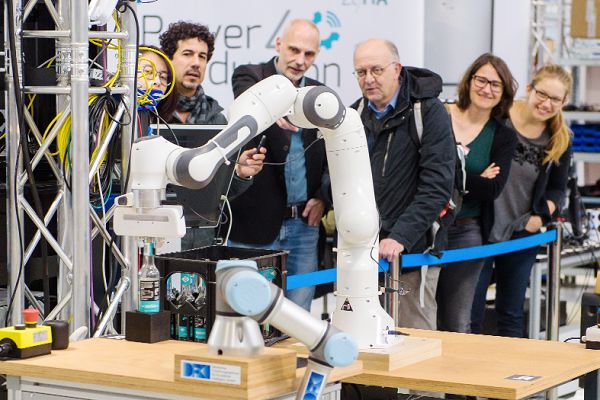
Artificial intelligence (AI), narrowing the gap between human and machine
I may not keep my job in the near future when automation becomes the norm.
I work as a photographer at the Graphic Communications Group Limited (GCGL), taking interesting pictures for publication in the various newspapers in the stable of the company.
The future, in which my job can be done by a machine is not only unimaginable, but inevitable.
Come that time, the job of taking great pictures will be done faster and to a standard which no human can attain. It will be ludicrous for me to think that my company will not make that shift as the technology becomes available.
There are several reasons convincing me that autonomous robots will replace current jobs in the next few years.
A drone that takes pictures perfectly is just one example of the automation of a job that is currently being done by highly trained photographers.
Artificial Intelligence
Artificial Intelligence (AI) is a buzzword being heard more and more these days. The term refers to nothing more than computer programmes that are designed to self-optimise.
Acknowledging the importance of AI, the German government has chosen to dedicate this year, 2019 as the German Science year for this technology and is also investing three billion euros in research to ensure that society benefits from advances in this field.
Prior to that, the government through German Academic Exchange Service (DAAD) invited 16 international science journalists on a tour conducted around the theme, “the future of work”. I happened to be part of that programme.
During the tour, various concerns were raised as to how working life will change in future and which technology will play a major role in the process.
It was obvious that robots were taking over jobs and some jobs will become vulnerable to automation. One of the reasons is that robots rarely take sick leave and they do not complain of working 24/7, neither are they tipped.
Vulnerability to automation
In a study published in 2013, Carl Benedikt Frey and Michael Osborne examined the probability of computerisation of 702 occupations and found that 47 per cent of workers in America had jobs at a high risk of potential automation.
They warned that most workers such as taxi driver, delivering drivers, receptionists and security guards were likely to be substituted by automation and robots.
Jobs such as cashiers, counter and rental clerks, telemarketers and accountants also faced a high risk of automation.
The driver
Speaking on the future of urban mobility, Dr Bernhard Unsseld, Head of management of the Drees & Summer in Stuttgart-Germany, said researchers at the Swiss Federal Institute of Technology in Lausanne wanted to integrate driver-less shuttle buses into the local public transport system and a test vehicle to that effect was already being rolled out since 2016.
He said taxi drivers, truck drivers and chauffeurs were all on the verge of losing their jobs to the self-driving vehicle.
It is a fact that this technology has not yet been perfected, but some remarkable advancement has been made in the field of autonomous driving.
He said autonomous driving would play a key role in urban mobility in future, as it would be affordable by every family to have its own self-driving vehicle and use it like a conventional car.
Caregivers/room service
The days of caregivers, room service workers and waiters in hotels, delivering morning paper, towel, foods and drinks, could also become a relic of the past due to the rise of the robot butler.
From bartenders to cooks, every job in the food service industry is also becoming a fair game for automation, as smart hotels and restaurants are now jumping on board to remain ahead in the cuting edge industry.
Dr Brigit Graf, Group Manager for personal and domestic robotics of the fraunhofer Institute for Automation, said a service assistant robot had been developed to automatically deliver drinks, snacks and magazines to the residents in lounges.
According to her “automatically driven intelligent care trolleys" have also been manufactured to provide the necessary laundry services and care to elderly and infirm persons.
Loan, insurance, etc
Speaking on AI and its application in taxation in Saarbrucken, Germany, Mr Sebastian Stephan, a researcher at the German Research Center for Artificial Intelligence, said jobs that involved formula based decision making, filling out forms, were all recipes for automation.
He mentioned that an online tax platforms, such as Intuit’s TurboTax, were a good example of the automation, adding that not all areas in taxation could be automated, but a reduction in persons needed in those professions was possible.
He said that as artificial intelligence advanced its impact on the professions would be greater. For those who work as social workers, therapists, teachers, doctors, pilots, police officers, robotic engineers and the clergy, robots and AI software could not come close to providing the necessary services required for those kind of jobs currently.
If there were a profession that would not lose a single person to automation, then it might be the clergy, because one could not imagine robots conducting Sunday mass or a funeral service.
Conclusion
The future of work has become one of the hottest topics across the globe and understanding the conflicting information from various experts leaves plenty of room for debate around what impact automation technology such as artificial intelligence and robotics would have on jobs, skills and wages of various professions.
Writer’s email:
